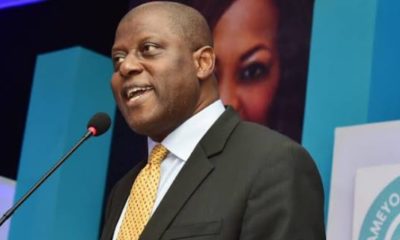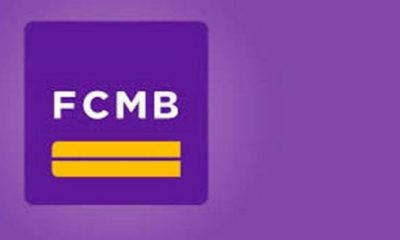Business
CBN Pulls Back Monetary Policy Document
The Monetary, Credit, Foreign Trade, and Exchange Policy Guidelines for Fiscal Years 2024 – 2025 document published on Tuesday, September 17, 2024, has been withdrawn by the Central Bank of Nigeria (CBN).
The apex bank made known the invalidation in an unsigned statement published on its website on Friday.
ALSO READ: CBN Reconstitutes Keystone Bank’s Board
It averred that the rescinding of the decision was to minimise the risk of any further misrepresentation or misinterpretation, resulting in confusion among stakeholders.
As at Tuesday, excerpts of the policy documents expressed that the lenders’ lender would sustain Ways and Means Advances to the Federal Government at a five percent limit for the fiscal years 2024-2025.
The interest stipulation, however, was contrary to a bill passed by the National Assembly which raised the maximum borrowing percentage in the Act from five percent to 10 percent.
It also had the reinstatement of the cybersecurity levy, which was suspended earlier this year, after a deafening public outcry.
In refuting the claims, the CBN said the guidelines were misunderstood by some outlets as new policies when, they were merely a compilation of previously issued policies and directives effective until December 31, 2023.
It also noted that some policies mentioned in the guidelines have been revised or replaced by newer updates.
The statement read, “The attention of the Central Bank of Nigeria has been drawn to certain instances of misinterpretation or misrepresentation of its biennial publication on Monetary, Credit, Foreign Trade, and Exchange Policy Guidelines published on September 17, 2024.
“In response, the CBN has temporarily withdrawn the document to minimise the risk of any further misrepresentation. As is stated explicitly in the document to guide stakeholders, the CBN reiterates that the publication is a compilation of previously issued policies and guidelines issued by the bank up to a cut-off date, typically December 31 of the relevant year.
“As in all previous editions, the current document is intended to achieve the following objectives: A single reference source for the ease and convenience of stakeholders. A valid compilation of policies, directives, and guidelines for adjudication in conflict situations involving stakeholders.”
The apex bank also noted that as a compendium of previously issued policies and guidelines, the provisions remained applicable, only to the extent that there had been no updates or revisions to the guidelines and policies contained therein.
“In line with prior editions, the most recent publication (January 2024) contains policies and guidelines issued by the bank up to December 31, 2023, some of which will remain relevant during the period 2024 – 2025,” the bank stated.
Continuing, the statement noted that, “In the light of these clarifications, we ask stakeholders to note the following: Some recent media publications referencing aspects of the guidelines refer to policy positions of the bank issued prior to December 31, 2023, which have changed in the light of revisions and updates in 2024. One example is the Cyber Security Levy, which was suspended in May 2024, superseding the circular reported in the guidelines.
“Certain technical aspects of the guidelines have been widely misreported and misrepresented. For example, reports have mistakenly sought to link the fuel subsidy removal to external reserves. Such reports essentially missed the analytical basis for the original statement, which was intended to observe a potential risk that was to be mitigated by policy. More recently, policies of the bank around the naira exchange rate and those of the fiscal authorities have positively altered the outlook of the subject in question.
“In summary, the guidelines must primarily be viewed as a record of policies, circulars and directives issued by the bank up to the end of 2023. They are not new directives and should not be reported as such.
“The bank will continue to provide clear monetary policy direction and advice for the overall good of the economy. We urge all stakeholders to seek clarification of information about the Bank before publishing,” the statement concluded.
Business
Savannah Energy Provides Unaudited FY 2024 Trading Updates

Savannah Energy has shared a trading update on its Nigerian operations and other markets in Africa, including up-to-date cash collections in its Nigerian business.
According to the update, made available on Thursday in Lagos, its gross production in Nigeria averaged 23.1 Kboepd for FY 2024, broadly in line with the prior year’s 23.6 Kboepd, of which 88% was gas (FY 2023: 91%).
On the update, CEO of Savannah Energy, Andrew Knott, said, “I am pleased to provide a FY trading update which demonstrates the continued progress we have made in 2024, a year which saw the highest level of cash collections ever recorded by our Nigerian business. 2025 is expected to be an exciting year for our Company: we have a large planned operational programme in Nigeria which is anticipated to enhance both our oil and gas production levels and capacity; we intend to progress our R3 East oil development project in Niger; we continue to pursue key acquisitions in the upstream oil and gas space; and we continue to seek to build our power business.
“Fundamentally, Savannah remains unequivocally an “AND” company, seeking to deliver strong performance both for the short AND long term across multiple fronts, and pursuing growth opportunities in both the hydrocarbon AND power sectors.”
The update It also shows that it generated a Total Income of US$393.6 million in 2024, compared to FY 2023’s US$289.8 million. This consists of Total Revenues of US$258.7 million and Other operating income of US$134.9 million.
The report also shows that Savannah’s FY 2024 Total Revenues were ahead of the previously issued financial guidance of greater than US$245 million, while FY 2024 financial guidance is reiterated for Operating expenses plus administrative expenses at ‘up to US$75 million’. The company expects its FY 2024 capital expenditure to come in lower than planned (previously guided at ‘up to US$50 million’) due to the phasing of spend.
ALSO READ: CSR: Dangote Awards Scholarships To 473 Students
According to the update, Savannah’s cash collections in 2024 amounted to US$248.5 million, a slight increase from the US$206 million it received in 2023. The report further shows that its cash balances as at 31 December 2024 stood at US$32.6 million, compared to the 31 December 2023 figure of US$107.0 million.
The report shows that the company’s midstream subsidiary, Accugas Limited, had as at 31 December 2024 drawn down on its NGN332 billion of the NGN Transitional Facility, with the resulting funds being converted to US$, which, along with cash held, was used to partially prepay the existing Accugas US$ Facility, leaving a balance as at 31 December 2024 of approximately US$212.3 million.
The report also provided new updates on Accugas’ US$45 million Uquo Central Processing Facility (“Uquo CPF”) compression project in Nigeria, noting that its commissioning which will enable the expansion of gas production in the medium term is well underway.
The report highlighted the progress being made in the procurement process of long lead equipment in Nigeria for a potential two-well drilling campaign on the Uquo Field in H2 2025, with an additional gas development well expected to add up to 80 MMscfpd of supplemental production capacity and a potential exploration well targeting an Unrisked Gross gas initially in place (“GIIP”) of 154 Bscf (25.7 MMboe) of incremental gas resources.
The update shows that progress is also being made in the planned Savannah acquisition of Sinopec International Petroleum Exploration and Production Company Nigeria Limited, whose principal asset is a 49% non-operated interest in the Stubb Creek oil and gas field (“Stubb Creek”), with regulatory approval and completion being targeted in Q1 2025. Following the completion of the acquisition, Savannah intends to commence an expansion programme which is anticipated to increase Stubb Creek gross production from an average of 2.7 Kbopd in 2024 to approximately 4.7 Kbopd.
In Niger, Savannah continues to seek to progress its 35 MMstb (Gross 2C Resources) R3 East oil development in South-East Niger, while it continues to push for a potential alternative transaction structure to acquire a material stake in producing oil and gas assets in South Sudan as previously announced on 20 December 2024.
On the renewable energy front, the update shows that Savannah has up to 696 MW of renewable energy projects currently in motion, including the up to 250 MW Parc Eolien de la Tarka wind farm project in Niger and the up to 95 MW Bini a Warak hybrid hydroelectric and solar project in Cameroon. A firm believer in Africa’s transition to renewable energy, Savannah continues to target a portfolio of up to 2 GW+ of power projects in motion by the end of 2026.
Business
Nigeria Can Achieve 5.5% GDP Growth – NESG
The Nigerian Economic Summit Group (NESG) has projected that the country has the potential to achieve a 5.5% growth in Gross Domestic Product (GDP) if critical policy reforms are sustained.
This was disclosed on Thursday during the launch of the NESG’s 2025 Macroeconomic Outlook report.
Speaking at the event, the Chief Economist and Director of Research & Development at NESG, Dr. Olusegun Omisakin, highlighted the need for more efficient policy implementation to unlock Nigeria’s economic potential.
READ MORE: Davido Is Richer Than His Billionaire Father – Ibrahim Chatta Claims
“We believe at the optimal level, if we embark on more efficient policy reforms, the Nigerian economy has the potential, the GDP to end up at 5.5 per cent, and we believe that this is achievable,” Omisakin stated.
More to follow……….
Business
CBN Approves Release Of Nigerian FX Code
The Central Bank of Nigeria (CBN) has announced the release of the Nigerian Foreign Exchange (FX) Code, a set of guidelines designed to promote ethical conduct among authorized dealers in the country’s FX market.
In a statement, the apex bank disclosed that the official launch of the Code would take place on Tuesday, January 28, 2025, at the CBN Head Office Auditorium in Abuja.
READ MORE: Dangote Denies Culpability In Pumping Up Petrol Price
“The Central Bank of Nigeria has approved the release of the Nigerian Foreign Exchange (FX) Code as a guideline to the banking industry to promote the ethical conduct of authorised dealers in the Nigerian Foreign Exchange Market,” the statement read.
The introduction of the FX Code is expected to enhance transparency, accountability, and professionalism within Nigeria’s foreign exchange ecosystem, aligning it with global best practices.
The event is anticipated to attract key stakeholders in the financial and banking sectors, as well as representatives from authorized FX-dealing institutions across the country.

























